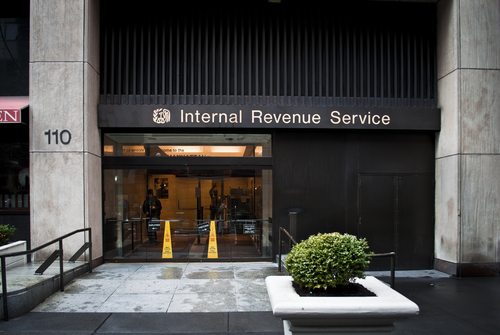
October 31, 2013; Judicial Watch
Email correspondence made public through a Freedom of Information Act (FOIA) request filed with the Federal Election Commission (FEC) shows that the FEC requested, and the IRS provided, tax return and taxpayer correspondence between the IRS and several nonprofit organizations, including the American Futures Fund (AFF) and the American Issues Project (AIP). The FOIA request, made by Judicial Watch on August 9th, was responded to this week with almost 200 pages of correspondence generated in 2009 and 2010 between Lois Lerner, the then-director of the Exempt Organizations (EO) division of the IRS (who was formerly employed at the FEC) and staff attorneys at the FEC.
The Wall Street Journal’s Kimberly Strassel reported in her column on August 1st that congressional investigators had been provided the email traffic by the Internal Revenue Service as part of its investigation into the IRS’s handling of applications for tax exemption by nonprofit groups. The IRS has admitted that it selected for special scrutiny applications from groups with certain conservative keywords in their names and activities. These applications were collectively referred to within the IRS as the “Tea Party Cases.” Judicial Watch sent the same FOIA request to the IRS, but the IRS has not yet responded.
Sign up for our free newsletters
Subscribe to NPQ's newsletters to have our top stories delivered directly to your inbox.
By signing up, you agree to our privacy policy and terms of use, and to receive messages from NPQ and our partners.
As Strassel and Judicial Watch both note, there are two key problems with this email contact between the IRS and the FEC.
The first problem is potential violation of IRS regulations by Lerner and IRS staff. To protect taxpayer confidentiality, Section 6103 of the Internal Revenue Code makes it a felony for any IRS employee to make taxpayer information available to government employees in agencies outside the IRS. Since AFF and AIP had not yet received their 501(c)(4) recognition, their Form 1024 application materials and correspondence with the IRS were still confidential. Only once an application for exempt recognition is approved does it become public record. Even though the FEC emails referred to requesting only publicly available materials from Lerner, the IRS provided confidential information. The reference to “publicly available” in the request is curious. If the FEC only needed public information, why wouldn’t the FEC simply request the material directly from the organizations themselves? Nonprofits are required to make their tax-exempt applications, IRS correspondence, and recent Form 990 returns available to anyone upon request, with very limited exceptions. At the very least, Form 990 returns may be viewed by FEC staff (by anyone, for that matter) for free on the GuideStar website.
The second problem is at the Federal Election Commission. FEC staff may only conduct a formal investigation after the six FEC Commissioners authorize it, No authorization was given for the investigation of AIP and AFF. While it’s true that FEC staff may accumulate preliminary data to brief the FEC Commissioners and seek authorization to investigate, the FEC staff pursued three separate lines of investigation over two years without securing authorization. In her WSJ column, Strassel’s analyzes the pattern of the FEC activity and believes that it constituted harassment of AIP and AFF.
The correspondence between the groups and the IRS included several sequential IRS requests for additional information necessary to make a tax-exemption determination. “Inquiry letters” like the ones included in the emails provided to Judicial Watch were characterized by the Treasury Inspector General’s office in its May 2013 investigation report as reflecting use of “inappropriate criteria” in evaluating nonprofits’ applications.
There are at least five concurrent investigations of the IRS’s handling of tax-exemption applications and the targeting of conservative groups, including the Treasury Inspector General, the FBI, and at least three congressional committees. As previously reported by NPQ, to date, the IRS has provided a small percentage of the materials requested by investigators. The investigations have a long way to go, and there may be many more revelations to come. The Judicial Watch request, however, is among the first to show documented evidence of IRS activity and confirms the Wall Street Journal’s report linking the FEC into the IRS scandal.—Michael Wyland












